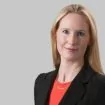The Cayman Islands Parliament has approved the Beneficial Ownership Transparency Act (BOT Act), as a restatement and enhancement of Cayman's beneficial ownership regime.
The BOT Act is not yet in force, pending a commencement order, so for now Cayman's existing beneficial ownership transparency obligations will remain in effect (see our full briefing on the Cayman Islands Beneficial Ownership Regime).
However, all Cayman entities should assess how the BOT Act will apply to them, as the regime will be extended to some types of entity that were previously excluded – we outline the key changes below.
Timing
Regulations and guidance notes to support the BOT Act are expected to be developed in the first quarter of 2024; and implementation of the BOT Act is expected to commence, on a phased basis, through the second half of 2024. We will provide a further update as to specific actions to be taken once the details of the regulations and guidance notes have been finalised.
Key changes
The key changes to note for Cayman Islands investment fund vehicles, managers and advisors are as follows:
- All partnerships (including exempted limited partnerships) will be within the scope of the BOT Act.
- The current exemptions under the existing beneficial ownership regime will be removed, including the exemption for funds registered under the Mutual Funds Act or the Private Funds Act. Instead, registered funds will be able to utilise an "alternative route to compliance", which will require them to provide the corporate services provider that maintains their beneficial ownership register in the Cayman Islands (CSP) (typically, the registered office) with the contact details of a licensed fund administrator or another contact person in the Cayman Islands that is licensed or registered under a regulatory law for providing beneficial ownership information. Such contact person may be required to provide the competent authority with requested beneficial ownership information within 24 hours of a request being made.
- The definition of "beneficial owner" will be amended to align more closely with the definition used in Cayman's Anti-Money Laundering Regulations, albeit that the ownership and control percentage threshold under the beneficial ownership regime will remain at 25% or more, whereas for AML it will be 10% or more.
- Entities which are registered (as opposed to licensed) with the Cayman Islands Monetary Authority (CIMA) under a regulatory law such as the Securities Investment Business Act or the Virtual Asset (Service Providers) Act will no longer be exempt and will be required to establish and maintain a beneficial ownership register under the BOT Act.
- In-scope entities will need to provide certain additional information in respect of their beneficial owners, for example, the nature of ownership or control held and the nationality of any individual beneficial owners. Verification documents must also be provided to enable the CSP to verify the accuracy of the beneficial ownership information or to enable the contact person to provide the information within 24 hours of a request, as applicable.
Public access
The BOT Act does not itself implement public access. However, in line with the commitment made by the Cayman Islands Government (CIG) in 2019 to the UK government, it does provide a framework under which the CIG may make regulations to provide for public access at a later date.
The Ministry of Financial Services has indicated that it is currently considering an approach which would allow access to those members of the public who meet the 'legitimate interest test' referred to in the November 2022 judgment of the European Court of Justice in WM (C-37/20) and Sovim SA (C-601-20) v. Luxembourg Business Registers, which could include access to parties who are genuinely seeking information so as to prevent or combat money laundering and terrorist financing. The latest Ministry of Financial Services media release on this is available online.
Next steps
No immediate action is required until the BOT Act comes into force which is expected to happen on a phased basis over the course of 2024. However, investment funds clients should start to work with their counsel and service providers to prepare for compliance with the BOT Act.
Entities currently in-scope of the existing beneficial ownership legislation
Currently in-scope entities should assess whether their existing beneficial ownership registers will require any amendments in light of the revised definition of "beneficial owner" under the BOT Act. All in-scope entities should also familiarise themselves with what their enhanced obligations will be under the BOT Act and, in particular, the additional information that will need to be provided in respect of their beneficial owners.
Entities currently out-of-scope of, or exempted under, the existing beneficial ownership legislation
Investment funds registered with CIMA will need to determine whether they may take the "alternative route to compliance" referred to above or whether they will be required to establish and maintain a beneficial ownership register. Registered funds that determine to take the "alternative route to compliance" should check that their CSP is able to act as the contact person for providing beneficial ownership information, as referred to above.
Any other Cayman Islands entities that are out-of-scope of, or exempted under, the current legislation will need to consider whether they will fall within scope of the BOT Act. Any entities that will be within the scope will need to prepare to establish and maintain a beneficial ownership register and familiarise themselves with their obligations under the BOT Act.
How can Ogier help?
Ogier is available to assist with all aspects of compliance with the Cayman Islands beneficial ownership regime including the classification of Cayman entities as in or out of scope of the BOT Act, identification of registrable beneficial owners and advice on the enhanced obligations that will be applicable to in-scope entities under the BOT Act.
Ogier Global (Cayman) Limited is able to act as contact person for registered funds taking the "alternative route to compliance" referred to above.
Should you have any questions or wish to receive further information, please contact your usual Ogier attorney or any of the contacts listed in this briefing.
The content of this article is intended to provide a general guide to the subject matter. Specialist advice should be sought about your specific circumstances.













